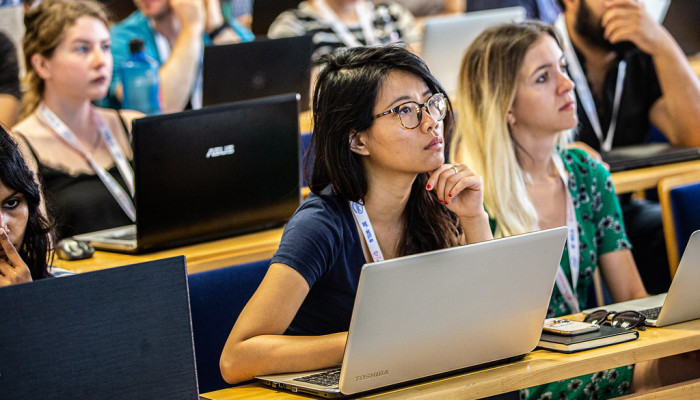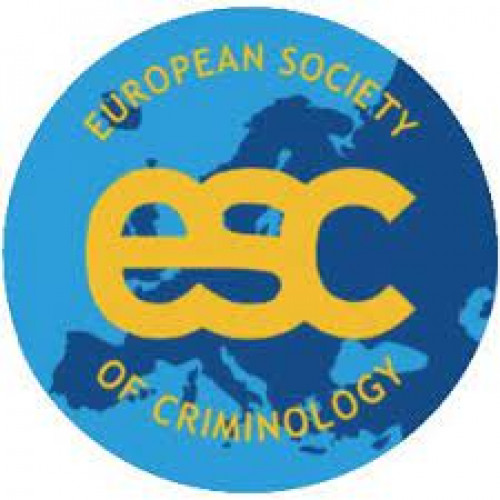First Summer School of the European Society of Criminology!!

2024 European Summer School on Criminology
First Summer School of the European Society of Criminology
Lausanne, 19-23 August 2024
(2 ECTS credits)
Coordination
Prof. Fernando Miró, University Miguel-Hernandez Elche, Spain
Prof. Marcelo F. Aebi, University of Lausanne, and Executive Secretary of the European Society of Criminology
Dr. Lorena Molnar, University of Lausanne, and European Society of Criminology
Brief description
The European Society of Criminology is known for its global influence in sharing knowledge and promoting criminology as a science, fostering a strong academic community. The Society has introduced the European Summer School on Criminology to enhance the education of emerging scholars and lay a solid foundation for the next generation of European criminologists and their networks. Its primary goal is to strengthen the scientific community and prepare for future developments. The ESC Summer School serves as a forward-thinking initiative that connects experienced and emerging experts, paving the way for a larger community in the years ahead.
The European Summer School on Criminology is a one-week course, spanning five days and offering 2 ECTS credits. It is designed for doctoral students and early-career researchers in criminology. The curriculum is aligned with the ESC’s broader activities, focusing on nurturing the professional growth of young researchers. This initiative involves inviting previous ESC award-winning scholars to serve as professors, ensuring a continuum of excellence and mentorship. Additionally, the program equips participants with the necessary skills for conducting high-quality, innovative research and provides guidance on securing funding through grants and research projects. The approach aims to bridge current practices with future advancements in European criminology, highlight the prestige of the ESC’s accolades, and empower the next generation of criminologists to successfully secure research funding.
Target audience and selection criteria
Target audience: 20 Early-stage and advanced PhD students, as well as postdoctoral researchers beginning their careers in criminology (and related disciplines, such as law, political science, sociology, or anthropology, whose research focuses on crime, deviance, and social control).
Selection criteria: (1) Academic progression, prioritizing those at the beginning of their careers. (2) Diverse national representation, setting aside a certain percentage for regions typically underrepresented in criminology, in alignment with the European Society of Criminology’s mission
Contents
Guest mentors
- Prof Dr Michael Levi, Full professor, University of Cardiff, United Kingdom
- Recipient of the European Society of Criminology European Criminology Award
- Letizia Paoli, Full professor, Leuven Institute of Criminology, Belgium
- Recipient of the European Society of Criminology Book Award
- Alberto Chrysoulakis, Lecturer, Malmö University, Sweden
- Recipient of the European Society of Criminology European Journal of Criminology Best Article of the Year Award
- Dr Jakub Drápal, Assistant professor, Charles University, Czech Republic.
- Recipient of the European Society of Criminology Young Criminologist Award.
- Prof Dr Josep Maria Tamarit, Full professor, Lleida University, Spain
- Current president of the European Society of Criminology
- Prof Dr Fernando Miró, Full professor, University Miguel-Hernandez Elche, Spain
- Coordinator of the Summer School and former member of the Executive Board of the European Society of Criminology
Local mentors
- Prof Dr Stefano Caneppele, Full professor, University of Lausanne.
- Dr Julien Chopin, senior researcher, Criminal Sciences School, University of Lausanne, Switzerland
- Dr Lorena Molnar, junior lecturer, Criminal Sciences School, University of Lausanne, Switzerland
- Prof Dr Marcelo F Aebi, Full professor, University of Lausanne, convener of the Summer school, and executive secretary of the European Society of Criminology
Evaluation modality
Evaluation will be based on attendance (minimum 80% to the sessions) and production of a manuscript extracted from the PhD project or a current research project.
Schedule / numbers of hours (60 hours, 2 ECTS credit points)
- 24 hours of classroom-based content.
- 6 hours approximative of mixed activities (preparation of presentations, networking, informal discussions about research, visits with criminological content, etc.).
- 30 hours of writing a manuscript of 5’000-6’000 words long in relation to the PhD that can be either review of literature or empirical research.
Results
Based on the specificity of the works that will be presented and of each one’s career, there will be a yes/no validation, based mainly on the achievements of the tasks to be conducted before and during the summer school as well as on attendance.
Planned activities on-site
Lectures
The Summer School features renowned criminologists who have received awards from the European Society of Criminology as guest speakers. They will cover topics such as launching a career in criminology, providing guidance on the steps and strategies for crafting a scientific paper, and conducting long-term research.
Mentors from the University of Lausanne will offer methodological insights during the Summer School, presenting qualitative and/or quantitative data analysis techniques tailored to the preferences and profiles of the participants. To customize the content, a questionnaire will be distributed before the Summer School begins.
Additionally, the convener will deliver an overview of comparative criminology, exploring crime trends across various European countries.
Finally, the President of the European Society will introduce new research findings in the field of victimology.
Round tables (3 round tables)
Participants will be asked to present their manuscript content during thematic roundtables, where the theoretical and methodological aspects of the subject will be discussed with the audience.
Workshop GTG: Get the Grant
The Summer School coordinator, with significant expertise in grant applications, will lead attendees through a workshop focused on securing funding and crafting grant applications throughout the week.
Writing and discussion sessions
Participants are requested to draft a manuscript of 5,000 to 6,000 words in relation to their Ph.D., which can be either a literature review or empirical research. Please submit your manuscript to the organizers by 15 May 2024. Two members of the keynote speakers will thoroughly review the manuscript and provide written and oral feedback to the attendee.
Applications
Applications for the Summer School should be forwarded via the UNIL platform: https://www.unil.ch/summerschools/criminology
Contact
For scientific inquiries: summerschool-1@esc-eurocrim.org
For administrative inquiries: summerschools@unil.ch
The provisional schedule of activities may be found here
